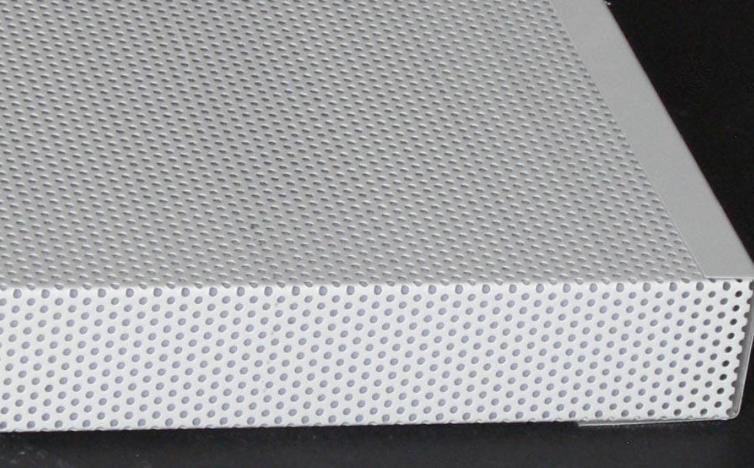When choosing acoustic panels, one of the biggest decisions is whether to go with perforated vs non-perforated acoustic panels. Each type has unique benefits in sound absorption, aesthetics, and functionality. This guide breaks down the differences to help you make the right choice for your needs.
What Are Perforated Acoustic Panels?
Perforated acoustic panels have small, evenly spaced holes that allow sound waves to pass through and get absorbed by the material behind them (usually foam or fiberglass). These panels are excellent for high-frequency sound control while maintaining a modern, decorative look.

Best Uses for Perforated Panels:
✔ Offices & conference rooms – Reduces echo without sacrificing style.
✔ Home theaters & studios – Enhances acoustics while blending with decor.
✔ Restaurants & lobbies – Provides sound absorption with a sleek finish.
What Are Non-Perforated Acoustic Panels?
Non-perforated acoustic panels have a solid surface, offering broad-spectrum sound absorption across low, mid, and high frequencies. They are typically thicker and more effective at blocking noise in high-traffic areas.
Best Uses for Non-Perforated Panels:
✔ Recording studios & home theaters – Blocks external noise and improves sound clarity.
✔ Open offices & classrooms – Reduces overall noise levels effectively.
✔ Industrial spaces – Durable and resistant to damage.
Key Differences: Perforated vs Non-Perforated Acoustic Panels
| Feature | Perforated Panels | Non-Perforated Panels |
|---|---|---|
| Sound Absorption | Best for high frequencies | Full-range absorption |
| Aesthetics | Modern, decorative | Minimalist, functional |
| Durability | Less durable (holes can collect dust) | More robust |
| Cost | Often more expensive | Typically more affordable |
Which Should You Choose?
- Choose perforated acoustic panels if you need stylish, high-frequency sound control in spaces like offices, homes, or restaurants.
- Opt for non-perforated acoustic panels if you require full-range noise reduction in studios, classrooms, or industrial settings.
Call us: Contact DeSound Soundproofing Expert in Bahrain For Soundproofing: +971 56 231 4204
Final Verdict
The choice between perforated vs non-perforated acoustic panels depends on your sound needs, design preferences, and budget. Perforated panels offer a balance of aesthetics and performance, while non-perforated panels deliver superior noise blocking and durability.

